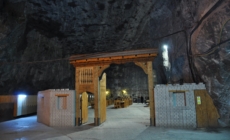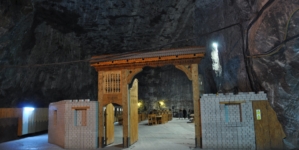-
“What a Nail-Biter!” – Viktor Orbán Congratulates Winner of Polish Elections - 22 mins ago
-
Defense Minister: Globalist world model has failed, and the future belongs to patriots - 26 mins ago
-
Justin Baldoni Body Double Reveals What Blake Lively Was Like on Set - 28 mins ago
-
Robertson family returns with Duck Dynasty revival after Phil Robertson’s death - 34 mins ago
-
Brewers vs. Phillies Highlights | MLB on FOX - 43 mins ago
-
At least 200 killed as floods submerge Nigerian trading hub - 53 mins ago
-
Arrival of New Skyfox Jets Marks the Beginning of a New Era - about 1 hour ago
-
Hungarian government to provide aid to Praid and every Hungarian living there - about 1 hour ago
-
Foods-May-Lower-Early-Death-Revealed – Newsweek - about 1 hour ago
-
Angels vs. Guardians Highlights | MLB on FOX - about 1 hour ago
Szijjártó: Government still protecting utility price reductions even after 20% rise across Europe
The foreign minister said that Ukraine’s decision to turn off the gas taps had led to higher prices, posing yet another challenge to the competitiveness of central Europe and the EU.
Péter Szijjártó, Minister of Foreign Affairs and Trade, said the government is protecting utility price reductions even after the 20 percent rise in gas prices in Europe on the back of Ukraine’s decision to cease gas deliveries from Russia.
“By now even the most fanatic Brusselites don’t contest that the European Union’s competitiveness had deteriorated sharply,” Minister Szijjártó said on Facebook. Gas prices, which are now higher in Europe than in most competing countries, are one of the main reasons for this, he added.
“At the same time, European natural gas prices have increased mostly due to measures that deliberately cut the amount of gas delivered, such as sanctions or other political steps to cut out certain resources or the closing of certain delivery routes,” he said. “Europeans are clearly the ones most harmed by those measures.”
Meanwhile, Hungary made an effort to diversify its delivery routes in recent years, Minister Szijjártó said, adding that this ensured the security of energy supplies, “even if we do feel the impact of rising European prices”.
Since the decision to scrap the transit route leading through Ukraine to central and eastern Europe in mid-December, the price of gas in European markets has jumped by 20 percent, he added.
“Ukraine’s decision has again put the European economy in a difficult situation, even though the country is a candidate for accession,” he added.
Minister Szijjártó said that since Ukraine’s move had been especially harmful to central Europe, he had discussed the situation with Slovak counterpart Juraj Blanar.
“We were in agreement that the EU-Ukraine Association Agreement should be honoured by both parties and that the pact also has provisions on keeping up energy delivery routes.”
Minister Szijjártó said that during the debates surrounding the construction of the TurkStream pipeline a few years ago, “we were threatened by our allies, who tried to dissuade us from the investment in a friendly way,” he said.
Landlocked Hungary would now be in a tight spot had it not withstood the “friendly” pressure then, Minister Szijjártó said.
He said that under the current circumstances, Hungary’s energy supply was secure. At the same time, he said that Ukraine’s decision to turn off the gas taps had led to higher prices, posing yet another challenge to the competitiveness of central Europe and the EU.
“Still, Hungary will continue to protect the achievements of its utility price caps, even in this challenging environment, and we will continue the cooperation with our partners in the region,” he said.
Source link































